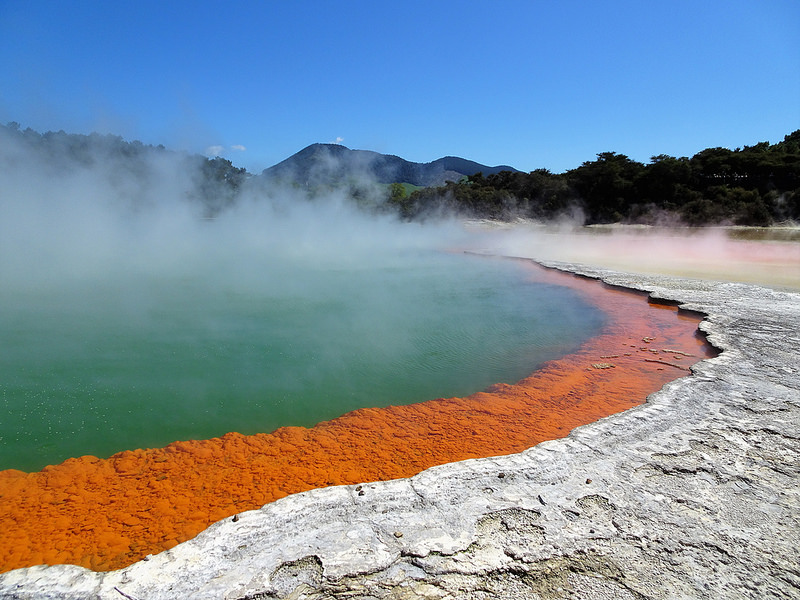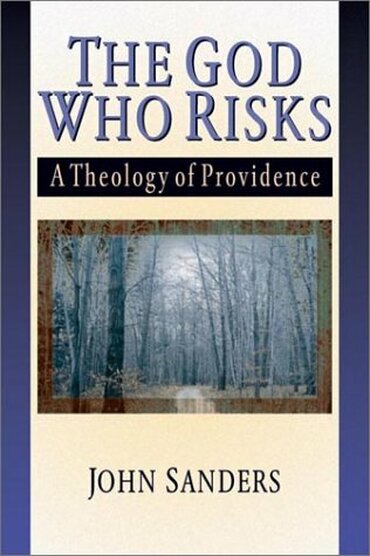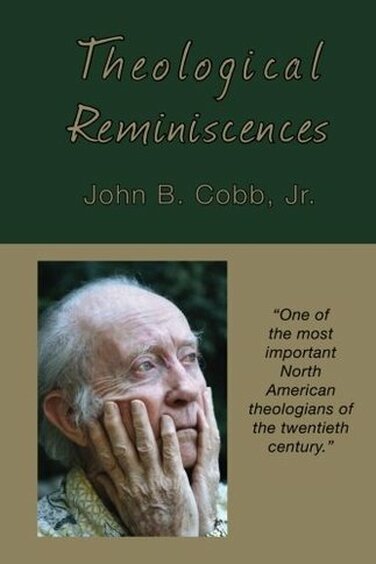Let the Blurring Begin
Learning from
Process Theology and Open Theism
by Jay McDaniel
God the Companion
"I rejoice that in many ways my childhood faith, while transformed, is not denied or watered down. I reaffirm the trajectory on which it sent my life. I believed then that God is Love. I believe that now. I found God then the great companion who understands. That is how I find God now. I looked to God then to direct my life. I look to God now to direct my life. I thought then that the supreme calling is to love God with all that I am. I think now that this is the supreme calling."
-- John Cobb, Theological Reminiscences
God in Jesus
"What makes Jesus decisive for me is not just that he fulfilled his calling but that his calling was of decisive importance for human history. God called him to liberate the prophetic message from its remaining ethnocentrism, to deepen and enrich it, and to make it available to all. What a calling! And to what a remarkable extent Jesus' remarkable responsiveness led to the realization of God's purpose. Jesus created the possibility of a new kind of community. Paul brought such communities into being. Much of their distinctiveness faded with the passage of time, but some elements survive in many churches and occasionally such community is realized quite wonderfully even today. What Jesus called the Holy Spirit is real there."
-- John Cobb, Theological Reminiscences
Let the Blurring Begin
John Cobb is one of the most conservative Christians I know. I’m not talking about in politics or economics or social philosophy. He is critical of capitalism and American foreign policy, and he is all about helping build local communities in which people take care of themselves and the earth. Most describe him as a social radical. But in his attitudes toward God and Jesus he creatively conserves for himself and for many other Christians a confidence in biblical theism and in the decisiveness of Jesus for human history.
Whereas some might think of God as a force or energy, John thinks of God as a Subject in whose heart the universe lives and moves and has its being. Whereas some might think of Jesus as merely a teacher among teachers, John thinks of him as one who was called by God to help save the whole world. In John, being conservative and being radical are two sides of one coin. His conservatism comes from the future not just the past.
I am grateful to him for helping me want to become more conservative. I am still a conservative-in-the-making, but I'm working on it. I, too, would like to love God with the whole of my life. That seems a lot better than loving money, my country, or my ego.
*
I was sitting next to him recently at a meeting at the American Academy of Religion hearing talks about another form of conservatism for which I have great appreciation: the open theism movement. If you are unfamiliar with it, or just curious about its core teachings, I encourage you to visit the Open Theism Information website.
As you know, John Cobb is a process theologian influenced, not only by biblical traditions but also by Whitehead's philosophy. Indeed, Whitehead's philosophy has helped him be as conservative as he is.
Generally speaking many open theists draw sharp lines between open theism and process theology. The differences between open theists and process theists are important and real -- at least to theologians and philosophers. Still, they may have more to gain from becoming allies than arguing with each other. And there is a place where they really do share a common spirit: namely in their belief that God is affected by what happens in the world and responsive to its sufferings.
Is it not enough that, when so many people imagine God as a dictator in the sky, process theists and open theists emphasize God's love, God's openness? Would it not be good for the world if, at times, those of us shaped by one or the other of these traditions sing together?
*
Imagine a gospel choir. You do not need to have the same voice as someone next to you in order to harmonize, but in the very act of singing together something good emerges which is absent otherwise. When you sing with someone else your own voice is enriched by their voice, and the other way around. Process theologians call it relational power. Open theists might call it openness power.
Process theists and open theists think that God operates through openness power: through persuasion not coercion, hospitality not hatred, receptivity not divisiveness. Open theists emphasize that God chooses to operate this way, when God could have chosen otherwise; process theists emphasize that God acts in this way because God is Love.
Let them have these debates. But when it comes to the needs of the world and the human soul, and when it comes to the damage done to individual psyches and the larger world by dictator-minded theologies, such debates quickly become irrelevant except to the debaters. If God can work in the world through openness power, why can't process theologians and open theists do the same?
I am not alone in this interest. Thomas Oord proposed that, in the future, the boundaries between process theism and open theism need to be blurred, if open theism is to have a good future. If this happens, it will be good for process theology. We process theologians need open theism.
*
One of the strengths of process theology today is that it is now so multireligious. Today Whitehead’s philosophy offers a conceptual vocabulary by which Jews, Muslims, Christians, Hindus, Buddhists, Daoists, Confucians, and Naturalists are articulating their points of view in ways that foster respect for differences, mutual understanding, creative transformation, and, so important today, shared efforts at helping heal a broken world. A forthcoming conference in Claremont, California -- Seizing an Alternative: Toward an Ecological Civilization -- will provide a vivid illustration of this diversity and its possibilities for mutual endeavors aimed at the common good of the world.
One of the weaknesses of process theology is that, in its offering of a common vocabulary, it simultaneously fails to speak in the more particularized languages of existing, historical traditions, including conservative evangelical Christian traditions. These particularized languages contain wisdom that is more than, and often not found in, more abstract philosophical prose.
*
If there has been a problem in relations between process theism and open theism, part of the problem lies with the process side of things. Too often, articulations of process theology are overly abstract, disengaged from lived experience, unrelated to pastoral life, overly bold, and tone-deaf to metaphor and story. You can see my own critiques of Christian process theology in What is Missing in Process Theology? I think it has not been orthodox enough. Perhaps not Trinitarian enough, too. See The Space within the Trinity: All Beings Included.
*
One of my aims in developing this website has been to offer a platform for many process-oriented writers and artists who can articulate anew what is important to process thinkers in engaging ways.
And yet, as I have done this, I have truly missed having a strong voice for open theism, because I admire and am moved by so much of what it says. John Sanders explains that open theists want to affirm at least two kinds of openness in God: openness to the world and openness to the future.
We process theologians want to affirm the same, not for the sake of process theology, but for the sake of the world. We truly believe that the world can be more compassionate, more just, more creative, and more respectful of the more-than-human world, if people are open to a God who is open to the world, and join God in the work of Tikkun Olam. And we very much believe in God's dynamic omniscience,
Happily, open theists have been successful in promoting these two kinds of openness in conservative evangelical circles. Moreover, there are people in other religious traditions who, slowly but surely, are discovering and building upon the openness tradition. And open theists are exploring the implications of open theism for how we live in the world and interact other human beings: being open to our differences and honest about our uncertainties. This is only the beginning. Open Theism, whether understood as a distinct movement in its own right or as extension of the historical free-will tradition in Judaism, Christianity, and Islam, is in process.
*
So let us imagine the blurring. Maybe even pray for it. In God's dynamic omniscience, we know that God knows our needs even before we pray them. But we also know that, in the very act of prayer, something touches God that had not touched God before.

God the Open One
"Recently Christians in the United States and other parts of the world have begun to think about God in new ways. One of the most promising of these new ways is called Open Theism. Its critics believe that Open Theism runs contrary to biblical teachings, but its advocates believe that it is more consistent with biblical teachings than many alternatives. The issues revolve around the idea of “openness” itself.
Open theism affirms that the God of love works with creatures in order for them to share the love inherent in the trinity and to love one another. In this view God is “open” in two important senses. First, God is open to and affected by what creatures do; and second, God is open to the future in that, even for God, there is more than one possible future. God’s plan is not a blueprint but a broad intention that allows for a variety of options regarding precisely how these goals may be reached. God has “dynamic omniscience” meaning that God knows all the past and present as definite and God knows the future as possibilities. Because God has chosen to rely upon creatures for many aspects of life and humans do not always do what God wishes they would do, it follows that God takes some risks. Consequently, God adjusts divine plans and implements flexible strategies in order to try to achieve the divine purposes."
-- John Sanders
What would it look like if Christians influenced by process theology and open theism developed a common statement of belief? It might look something like this:
God as Omnipotent Love
When we consider that our own Milky Way is but one of a billion galaxies, each with a billion stars, we gain a sense of the inexplicable grandeur of the One in whose heart we live and move and have our being. Who cannot experience awe? Let our faith have cosmic leanings and not just terrestrial prejudices. Let us walk in wonder, knowing that God is always more than our concept of God. Let the stars be our witness.
But we trust that somehow the grandeur of God has a tenderness to it, too. Sometimes people can think of God in terms that are too big, and, for that matter, too authoritarian. Inspired by Jesus, we believe that God is big enough to be small -- big enough to pay attention to each living being, anywhere and everywhere, and say "You matter, I love you." Yes, we believe that the One by whose love the universe unfolds is infinitely tender and infinitely patient. We believe in an omnipotence of love.
We encourage fellow Christians to believe in omnipotent love, too. There's something deeply relational -- dare we say deeply Trinitarian -- about it. It's almost as if in God, long before the advent of our cosmic epoch, there was a great compassion, an infinite empathy, that made God "God." God did not choose to be loving, God was born loving, albeit in a beginningless way. God is always being born loving, again and again, out of empathy for and responsiveness to the world. Call it essential kenosis.
How to dwell in this world? We need metaphors. Some people imagine the world on the analogy of billiard balls: that is, entities that are separated from one another and collide. As Trinitarians we believe the world itself is made in the image of the Trinity: that is, profoundly relational from the get-go. No, we do not really think there are three distinct agents in the godhead, each with a will of his or her own. We can't go there. But we do think the idea of a divine trinity is a metaphor for relationality. So we find ourselves imagining that the world is relational, too: not so much a collection of objects as a communion of subjects. Collisions are real, but interconnectedness is still more real.
*
Back to the question. How to live? Perhaps metaphors from the world of music can help further the idea. We can imagine the world on the analogy of aimprovisational jazz concert not yet complete. We ourselves are among the concert's creators, and God is One who calls us to create music that is conducive to the well-being of life. Our lives are our instruments, and the decisions we make are the music we make. God's hope is that we will make music that helps us become fully alive in this life and in any life to come.
So often we fall short of the music we are beckoned to make, and this falling short is painful to God and painful to us. If we want to speak of divine wrath, then let this wrath be the flip side of divine pain. Even wrath is rooted in love.
But we also play music that is delightful to God, giving God pleasure. After all, we are made in God's image and can bring about goodness and beauty in the world, too. The good news is that, whatever decisions we make, God never gives up on us. God is faithful to us, even when we are not faithful to God. This is part of what was revealed in the healing ministry, death, and resurrection of Jesus. The healing ministry showed God's love for the marginalized and forsaken, the abandoned and despised. The death showed that there is a vulnerable side of God: a side that shares in and absorbs the suffering of all living beings, animals included. And the resurrection showed the creatively transforming side of God: the side that never gives up, always offering possibilities for new life, no matter what crosses befall the world. Jesus is our window to God.
This resurrection continues even today. It takes the form of a healing spirit at work in the world, comforting the afflicted and, of course, afflicting the comfortable, all for love's sake. It also takes the form of Jesus himself, who was resurrected from the dead, who dwells with God, and with whom we can have a personal relationship. We believe that there is a continuing journey after death for all human souls and this well includes our companion in faith, Jesus of Nazareth. Our aim is to be faithful to Jesus, not by placing him on a pedestal so high that nobody can relate to him, but by sharing in his faith. To repeat: Jesus is our window to God.
He is also our window to the world. We cannot separate our love of Jesus from our love of the world. When he taught us to pray that the will of God be done on earth as it is in heaven, he was sharing with us God's deepest hope for the melody we might play. It is that we grow as individuals in community with others and that we build communities of love, of shalom, in which all can share. Practically speaking, this means to help build communities that are creative, compassionate, participatory, multicultural, humane to animals, and ecologically wise -- with no one left behind. It also means having the courage to lovingly critique ourselves, our communities, and principalities and powers that obstruct the building of these communities, doing great harm along the way. As we walk with Jesus, sharing in his journey, we must speak truth to power, including capitalist power.
We do not ask that these communities come into being all at once or even once and for all. And we know that a walk with God is more than community building. We know that a walk with God includes interior movements of the heart and soul that are solitary, isolated, private, painful, and beautiful. We know that there is a mystical dimension to life that is never fully understood by overly-extroverted Christians, including evangelicals. We know that there is a liturgical dimension as well that cannot be reduced to muscular impulses aimed at 'saving the world' or 'saving the planet.' There is a quiet side to the Christian life: a side that sits at the feet of Jesus and anoints him with oil, even if the dishes need washing.
Still, we do seek to try to approximate these communities, and we trust that, in working in these ways, we are doing God's will. We have no idea whether, in some cosmic scheme of things, we are 'right' or 'wrong.' We are pretty sure we are wrong about a lot of things; the only thing certain is that we are uncertain. But we do step forward in hope, guided by our faith that in the end, the very God of the universe -- the very Soul in whose heart we and all things live and move and have our being -- will bring us to that peace for which our hearts, and all hearts, yearn.
-- Jay McDaniel



No comments:
Post a Comment